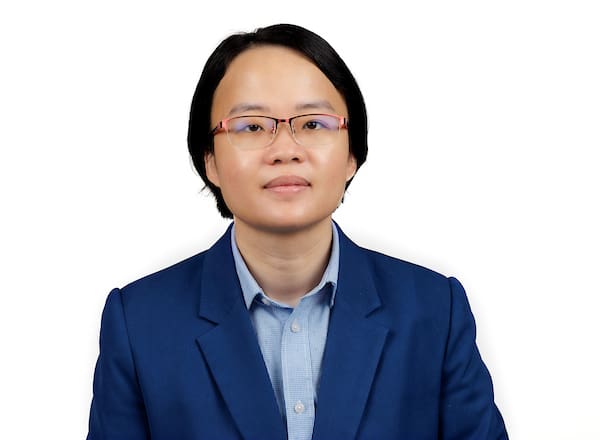UA Little Rock Welcomes Tran Phuong as New Cybersecurity Professor

UA Little Rock has strengthened its cybersecurity program with the addition of Dr. Tran Phuong, an experienced cryptography expert.
Phuong joins the Department of Computer Science as an assistant professor of cybersecurity and brings a wealth of knowledge in encryption and data security, offering students cutting-edge insights into one of the most critical areas of cybersecurity.
“I am thrilled to join UA Little Rock and be part of such a dynamic and growing cybersecurity program,” Phuong said. “I’m eager to work with students, not only in the classroom but also through hands-on research that tackles real-world security challenges. Together, we’ll explore the latest advancements in cybersecurity and develop the skills necessary to protect the digital world.”
Prior to UA Little Rock, Phuong served as a research assistant professor at the School of Cybersecurity at Old Dominion University. Previously, she was a research fellow at the Institute of Cybersecurity and Cryptology at the University of Wollongong, a contributed fellow at CSIRO’s Data61, the data and digital specialist arm of Australia’s national science agency, and a postdoctoral researcher at Old Dominion University.
Phuong earned a Bachelor of Science degree in Software Engineering from Ho Chi Minh City University of Science, a Master of Science degree in Information Security from Japan Advanced Institute of Science and Technology, and a Ph.D. in Cryptology and Cybersecurity from the University of Wollongong, Australia.
Her research areas include applied cryptography, blockchain security, IoT cybersecurity, and privacy preserving techniques for machine learning and theoretic learning. Her research has been cited more than 650 times, according to Google Scholar. She is a member of the International Association for Cryptologic Research and the Institute of Electrical and Electronics Engineers.
Her current research project includes privacy preserving for preventing cyberbullying in messaging systems, where she is designing a content-filtering app that would prevent abusive messages from being sent in messaging systems in social media platforms.
Additionally, she is researching how to preserve the privacy of communication for smart vehicles. The main goal of this project is to design, analyze, and implement a new, reliable, and efficient communication system that strengthens the safety of smart transportation against potential threats.
“We need to protect the information in vehicles to prevent adversaries from manipulating the data,” Phuong said. “There have been cases where hackers exploit the messages exchanged through vehicle-to-everything communication channels to disrupt communication and compromise vehicle systems, which can be really dangerous.”
